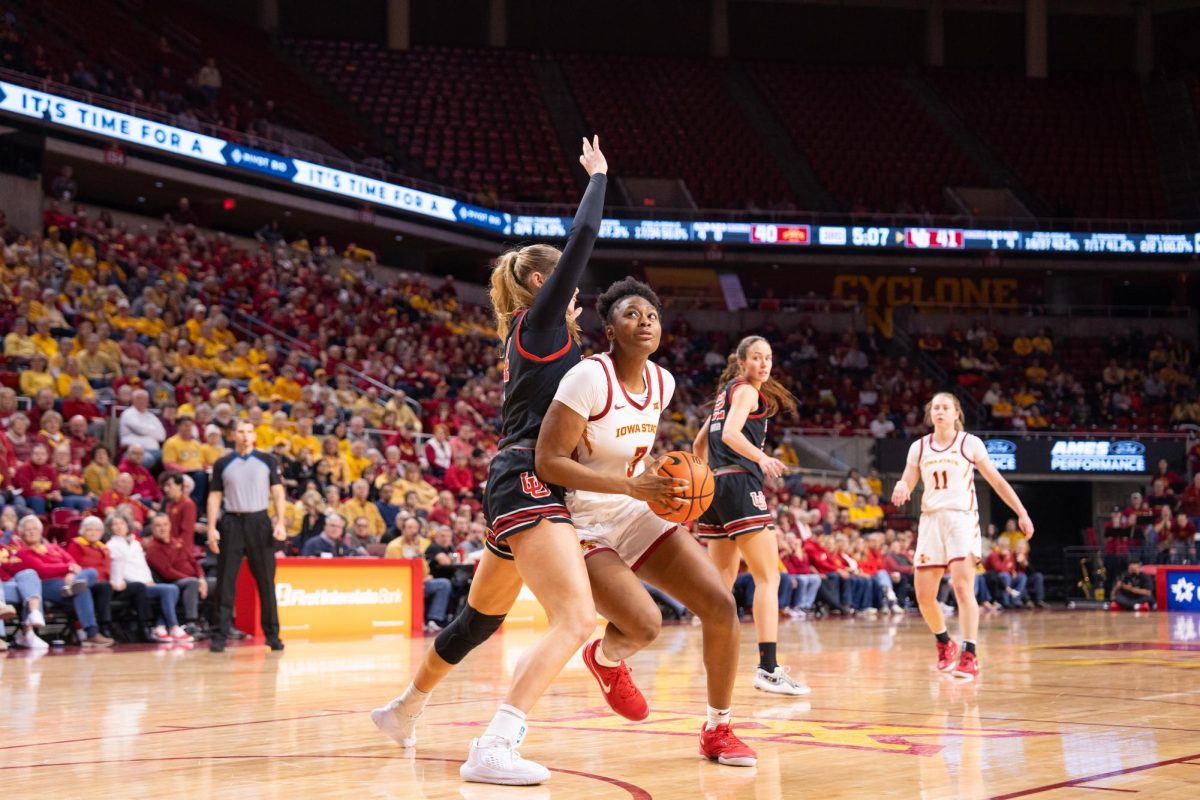Holidays hard on healthful eating habits
December 3, 1999
Cookies, cake, pie and candy are just some of the tasty temptations that come with the holidays. But just because December traditionally is a time for filling up on fatty foods doesn’t mean holiday revelers need to pack on extra pounds.
Anne Oldham, dietitian for the Iowa State Employee Wellness Program, said there are three main things to remember during the holiday season when it comes to eating.
“Continue a balanced diet, eat a variety of foods and [eat in] moderation,” Oldham said. “The biggest challenge is [to eat] moderate portions of food.”
Over the holidays, Oldham said, it’s important to be with friends and family, but part of that social aspect of the holidays is often food.
“Even though it’s an important part of the holidays, it’s most important to keep in mind moderation,” she said.
Oldham said a strong emphasis has been made by the American Dietetic Association to try to get away from labeling some foods good and other foods bad.
“All foods can fit into a healthy diet,” she said. “So even if you have a favorite holiday food that might be really high in fat and calories, if you’re eating moderate portions of that and balancing it with your other foods, you can still cut back on calories and fit that favorite holiday food in.”
It’s also important not to feel guilty about what you eat, Oldham said.
“I think a lot of times people feel guilty because they are enjoying some of their favorite foods, and they don’t need to feel that way,” she said. “You just need to balance it in with your other food choices.”
Exercise is another thing not to forget over the holidays, Oldham said.
“Balancing your [food] intake with your energy expenditure is also important,” she said. “If individuals can fit in more physical activity during the times they know they are eating more, that can help.”
There are also a few tips to remember when attending a party where appetisers and meals are going to be served, Oldham said.
“Use a small plate vs. a large plate, and you won’t take as much. Or [use] a napkin that can hold a few snacks,” she said. “Also, sipping on a low-calorie or calorie-free beverage can help in curbing continuous snacking.”
Sarah Dent, dietitian for the Student Wellness Center, said people also should be aware of what foods being served are going to be lower in calories and fat when they are at a social gathering.
“For appetisers, raw vegetables are always good,” Dent said. “Depending upon what type of dip they have, that will probably contain some fat. And also, low-fat crackers and pretzels are good. For the main course, most of the meats are relatively safe when eating in proportions. Gravies and sauces are what to watch out for. In terms of desserts, a lot of them tend to be high in fat and sugar.”
Dent said a good way to curb food intake at holiday parties is to never go to a party without eating something first.
“If you go to a gathering very hungry, you’re going to overeat. It’s inevitable,” she said. “I usually suggest to people to eat regularly like they would any other day to prepare themselves for not overeating.”
It doesn’t mean eating an entire meal before you go; snacking would be fine, Dent said.
“Listen to hunger cues, also. Eat when you’re hungry; stop when you’re full,” she said.
Dent said it also is crucial for people to realize that eating is part of the holiday season.
“You’re not going to eat like this all year round,” she said. “You still have to use some of the tips, but remember it’s not the end to healthy eating if you have a couple pieces of pie over break.”
Oldham also agreed the holidays should be a time for indulging.
“If you eat large amounts of food once or twice a year, that’s okay,” she said. “It’s what you’re doing every day that’s most important.






